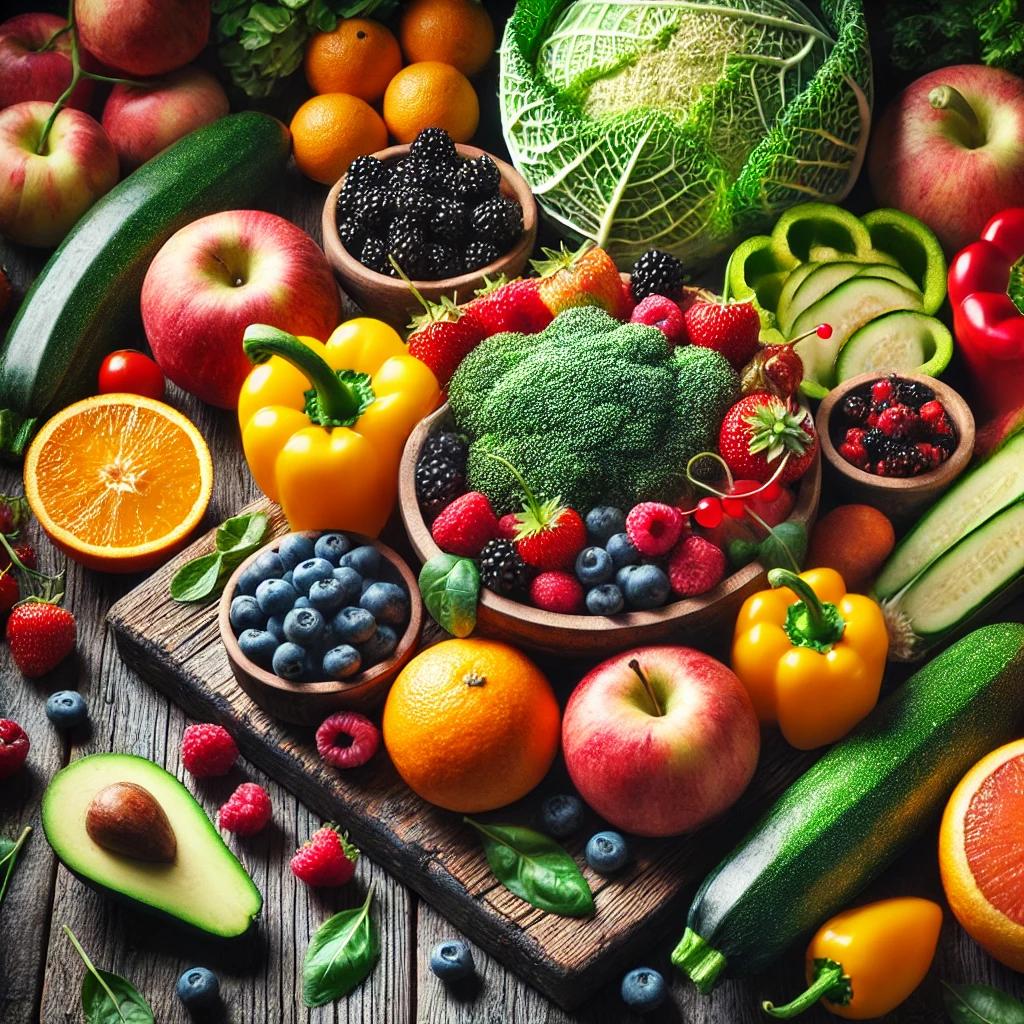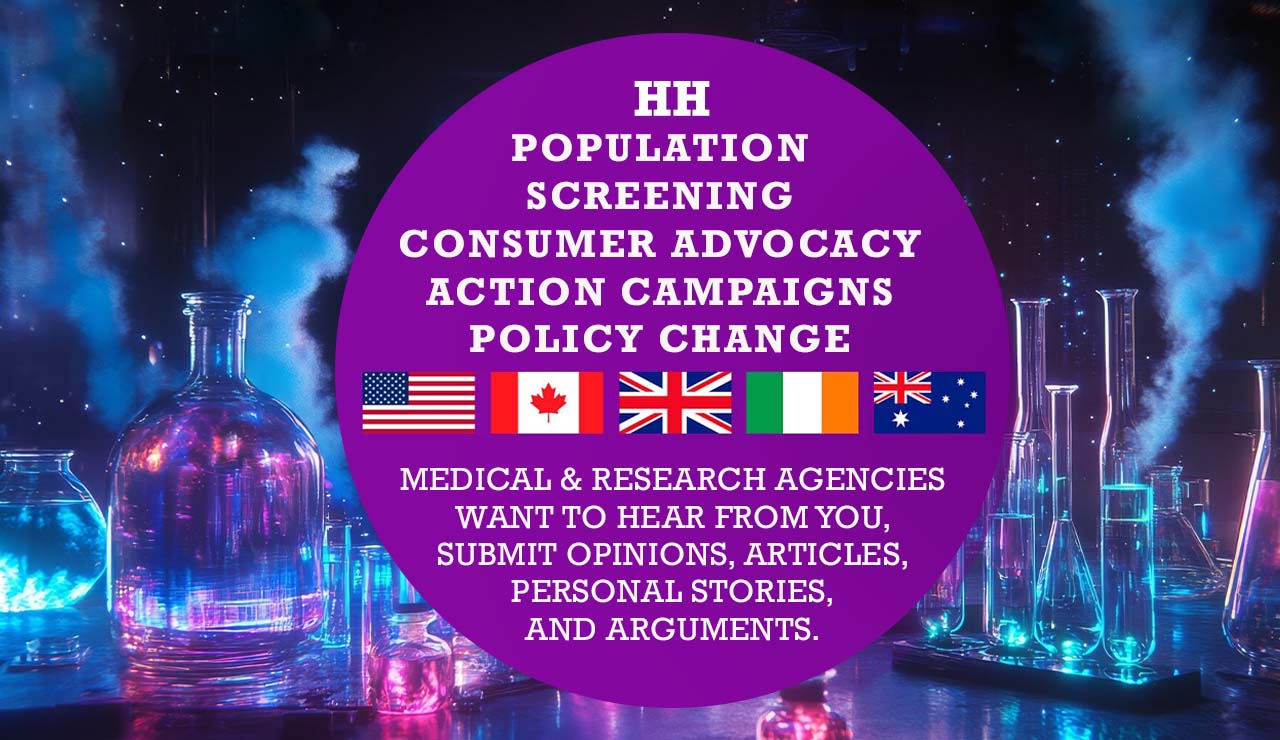Eating organic foods has gained immense popularity in recent years, and for good reasons. Organic foods, produced without synthetic pesticides, herbicides, GMOs, or artificial fertilizers, offer numerous health benefits. For individuals with hereditary hemochromatosis (HH), choosing an organic, low-iron, and predominantly plant-based diet can provide additional advantages in managing iron overload and promoting overall health. Let’s delve into the multifaceted benefits of eating organic and how it ties into managing HH through low-iron foods and a vegan or vegetarian lifestyle.
People who have Hereditary Hemochromatosis understand how metals can affect the body more than most. Sometimes we hear words so much they start to lose their meaning, or we just don’t take them as seriously as we should. My favorite Aunt had polio as a child and as a result she could barely move her right leg. I always felt so bad for her, and the explanation was there a polio outbreak, and she lost the use of the leg. Later in life I read a book called The Moth with the Iron Lung, it happens to be more ironic than you would think. The Author Forrest Maready explores the idea that the year before the first ever heard of Polio outbreak happened: The gypsy moth (Lymantria dispar) was introduced to the United States accidentally in 1869 by a French scientist named Étienne Léopold Trouvelot, who lived in Medford, Massachusetts. Trouvelot experimented with silk production and brought gypsy moth eggs from Europe to crossbreed them with silkworms in hopes of creating a hardy silk-producing insect. Unfortunately, the moths escaped, and the species quickly spread.
The theory is that in Vermont where they first started to see children being paralyzed usually starting in their legs was where The Gypsy Moth was wreaking havoc on the most important trees,
The moth’s caterpillars feed insatiably on the leaves of hardwood trees, such as: Maple trees, Oak trees, Birch trees, and Elm trees. These trees were vital to Vermont’s forests and agriculture, especially since Vermont’s economy relied heavily on timber and maple syrup production. The caterpillars severely weakened the forests, making them more susceptible to disease and other pests.
To combat infestation, they liberally sprayed heavy pesticides, that were arsenic, and lead based. They sprayed the fruits and vegetables, and even dipped cows in this extremely sticky pesticide. This environmental exposure is what The Moth in the Iron Lung, suggest that is what contributed to neurological symptoms that were mistaken for polio.
This is when I went 100% organic, but it’s not just the food we need to worry about. It is what we cook with, what we store our food in, what we put on our bodies. Besides obvious open pathways like our mouths, we have pores that things can seep into. I recently did a Heavy Metal test by having my hair tested, and my Aluminum was extremely high. Did I cook with Aluminum, liberally store food and cook with tin foil? Yes, I did and then I started to look at all the pathways aluminum can get into our bodies. Deodorant, I was actually doing a deodorant detox when I got my test results back! I remember the days when I drank a Coca-Cola every day, I also ate a lot of food from cans. Here are some other things you should check in your house that may contain Aluminum.
Cosmetics, dry shampoo, Baking powder, processed cheese, when I was younger I loved the cheese that came in wrappers, especially the fat free one…. Pickles (aluminum is sometimes used as a firming agent).Packaged snacks and processed foods (contain aluminum-based food colorants or preservatives). Cans and Bottles: Soda cans, beer cans, and some bottled drinks have aluminum linings. Canned foods, particularly those with acidic contents (like tomatoes or citrus). Health and Beauty Products: Antiperspirants, foundations, eye shadows, lipsticks, toothpaste.
Over-the-Counter Medications:
Antacids (aluminum hydroxide in Tums or Maalox), buffered aspirin (contains aluminum hydroxide to reduce stomach irritation). Vaccines and medications may contain aluminum as an adjuvant (to boost effectiveness).
Household Items: Pots and Pans, utensils, foil cookware, kitchen appliances, coffee makers, toasters, and pressure cookers, water Bottles and travel Mugs. Cleaning Products: Household cleaners, scouring pads, paints and sealants. Gardening Products: Aluminum sulfate) is used in gardening to adjust soil pH or as a fertilizer.
Foil packaging in snacks, medicine blister packs, and other food wrappers.
You need to really think about these things, because when you heat them, they become more potent.
How is your fancy coffee maker, convenient is what it is. All of this comes back to convenience. If you want to stay healthy, life is not going to be as convenient for you anymore. Try going all plant based, you will be making everything from scratch. I believe the benefit outweighs the convenience. Don’t worry Take the 7-Day Detox challenge, and you can rid easily turn your lifestyle around. Food Prep is the KEY to living a healthy lifestyle. It is easy, you take one day a week and make extremely large quantities of your favorite healthey foods. You then put them in Non-Toxic parchment paper, or BPA free containers, and watch those meals stack up! Soon you will just be buying the fresh frutis and veggies you need each week. At about 4:00-5:00 take out what sounds good and dinner is done!
Organic foods are often observed for their health benefits, environmental aida, and proper production methods. Here are some key reasons why organic going is a great choice:
- Reduced Exposure to Toxins: Organic farming avoids the use of synthetic pesticides and herbicides, which can leave harmful residues on food. For individuals with HH, this is particularly important as excessive toxins can increase oxidative stress in the body, compounding the damage caused by iron overload.
- Higher Nutrient Concentration: Organic products often contain higher levels of vitamins, minerals, and antioxidants. Antioxidants are crucial for individuals with HH, as they help combat oxidative stress caused by excess iron in the body.
- Avoiding GMOs: Organic foods are non-GMO, ensuring that you’re not consuming genetically modified organisms, which can have unknown long-term health effects. A clean, unprocessed diet can help maintain a balanced system, essential for individuals managing HH.
- Better Taste: Organic fruits and vegetables are often fresher and richer in flavor due to natural growing practices and the absence of artificial preservatives. This makes sticking to a healthy diet so easy.
- Environmental and Health Benefits: Organic farming practices promote soil health, conserve water, and reduce pollution. If you can find organic food that is make inside a greenhouse made with water and not soil that is the GOLD standard, Go Hydroponic, the systems are inexpensive, and it is just flat out fun to watch your fruits and vegetables grow!
Organic Foods and Hereditary Hemochromatosis
Over time, excess iron can damage organs, leading to serious health issues such as liver disease, diabetes, and heart problems. That is all they tell us it can cause. If you watch my AD for The Binding Factor, you will see researchers SUGGEST over thousands of times it causes much more than we know. Managing iron levels through diet is a cornerstone of living well with HH, and organic foods can play a significant role.
- Low-Iron Options: Many organic plant-based foods are naturally low in iron, making them ideal for individuals with HH. Organic options such as berries, citrus fruits, apples, and organic grains can help maintain a balanced diet without contributing to iron overload.
- Iron Chelation and Blocking: Certain organic foods, such as tea, grapefruit, apples, dark berries, and oat milk, can inhibit iron absorption. Research suggests some even chelate iron. Order a Custom meal plan, along with The Binding Factor, and see how you can manage them together in perfect harmony. Incorporating these into your meals can help manage iron levels more effectively.
- Reduced Inflammatory Foods: Organic diets tend to avoid highly processed and inflammatory foods, which can exacerbate the oxidative stress linked to HH. Instead, organic diets focus on whole, nutrient-rich foods that support overall health.
- Antioxidant-Rich Foods: Organic produce like blueberries, cherries, and leafy greens (excluding high-iron varieties like spinach and kale) are rich in antioxidants that counteract the oxidative damage caused by excess iron.
Benefits of a Vegan or Vegetarian Lifestyle for HH
Transitioning to a vegan or vegetarian lifestyle offers numerous benefits for individuals with HH. These diets emphasize plant-based foods that are typically lower in iron, particularly the heme iron found in animal products.Lower Heme Iron Intake: Animal products contain heme iron, which is absorbed more efficiently by the body compared to non-heme iron found in plant-based foods. A vegetarian diet minimizes heme iron intake, making it easier to control iron levels.
- Rich in Iron Blockers: Many plant-based foods naturally contain compounds that reduce iron absorption. For example:
- Phytates in grains, legumes, and seeds bind to iron, reducing absorption.
- Polyphenols in tea, coffee, and certain fruits act as natural iron chelators.
- Calcium in fortified plant-based, or oat milks inhibits iron absorption.
- High Fiber Content: Plant-based diets are rich in fiber, which supports digestive health and helps regulate blood sugar levels. For individuals with HH, maintaining stable blood sugar levels is essential for preventing complications such as diabetes.
- Weight Management: Vegan and vegetarian diets, when balanced, can promote healthy weight management. Obesity is a risk factor for conditions like fatty liver disease, which can worsen the effects of HH.
- Improved Liver Health: The liver is often affected by HH due to iron accumulation. A plant-based diet rich in liver-fri
The Binding Factor and Low-Iron Foods for HH
When crafting an organic diet tailored to HH, it’s essential to focus on foods that are both nutrient-dense and low in iron. Here’s a list of recommended organic foods:
- Fruits:
- Apples
- Berries (blueberries, strawberries, raspberries)
- Grapes and organic grape juice
- Pomegranates
- Citrus fruits (oranges, lemons, limes)
- Tomatoes
- Vegetables:
- Cauliflower
- Onions
- Garlic
- Broccoli
- Bell peppers
- Zucchini
- Cucumbers
- Grains and Starches:
- Purple Potatoes
- Quinoa
- Oats
- Sweet potatoes
- Legumes:
- Chickpeas
- Lentils
- Black beans (in moderation, as they contain non-heme iron)
- Dairy Alternatives:
- Fortified almond milk
- Coconut milk
- Oat milk
- Herbs and Spices:
- Turmeric
- Garlic
- Ginger
- Other Low-Iron Options:
- Organic tofu
- Tempeh
- Nuts and seeds (eaten in moderation)
Motivational Tips for Transitioning to an Organic, Plant-Based Diet
Adopting a new lifestyle can be challenging, but with the right mindset and strategies, it becomes much easier.
- Regulate Iron Levels: Organic, plant-based foods that are low in iron and rich in chelators can support iron management.
- Boost Antioxidant Intake: Organic produce provides antioxidants that protect against oxidative stress.
- Promote Overall Health: A clean diet free from harmful chemicals supports organ health and reduces the risk of complications.
- Try The 7-Day Detox
- Order a Custom Meal Plan Today!
- Want to kick Red Meat for good? Read our Blogs: But I can’t give up red meat Part 1
- But I can’t give up red meat Part 2
- ORDER: The Binding Factor TODAY! (You also get one week free from our Custom Meal Plans)


